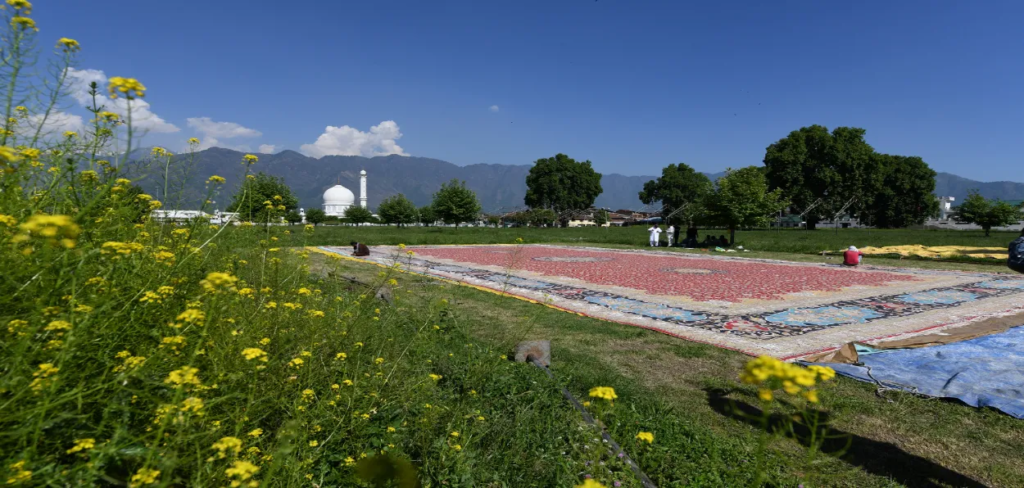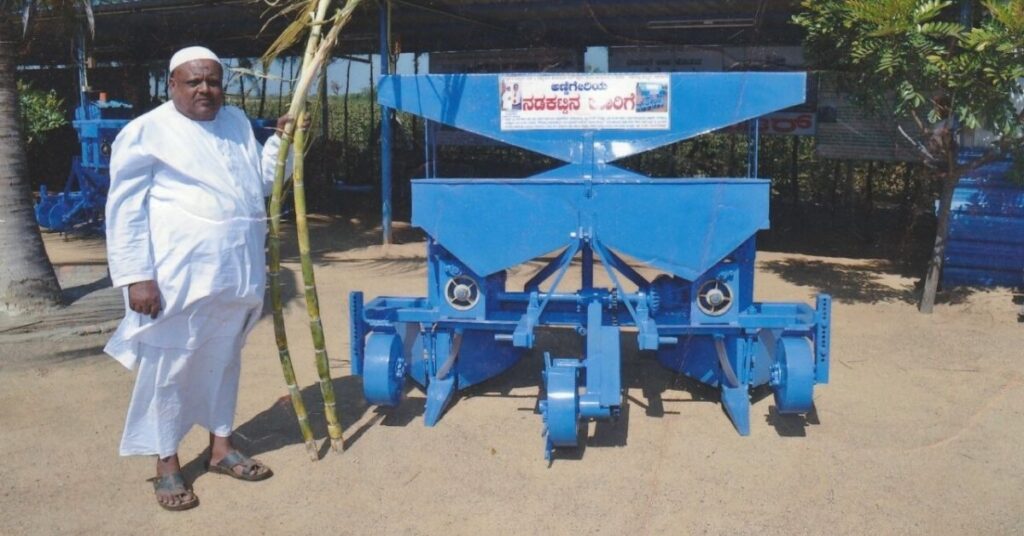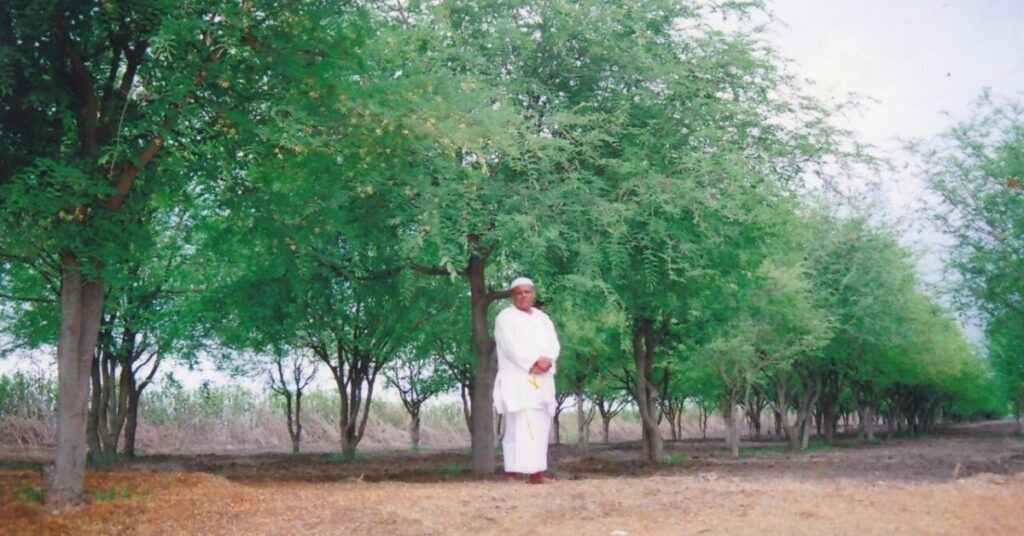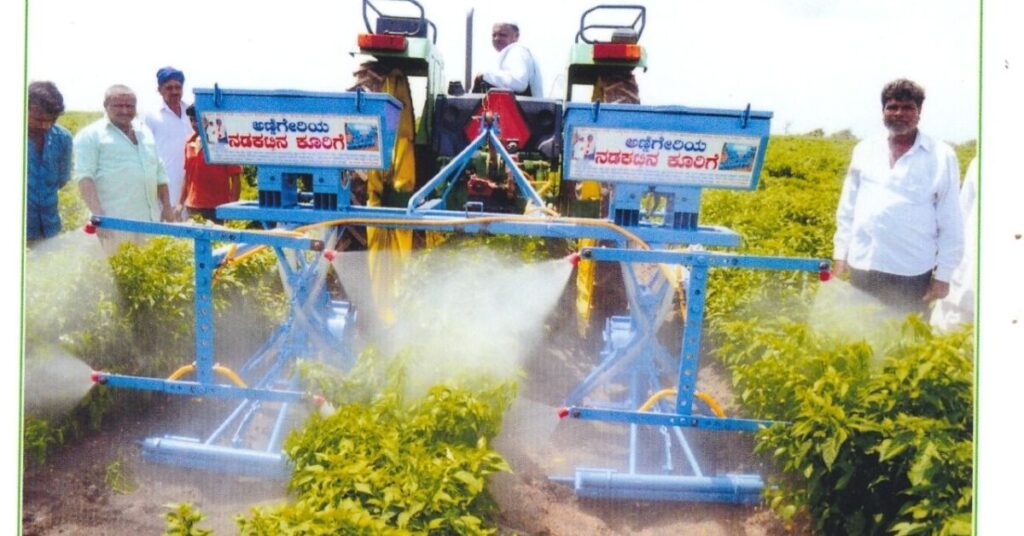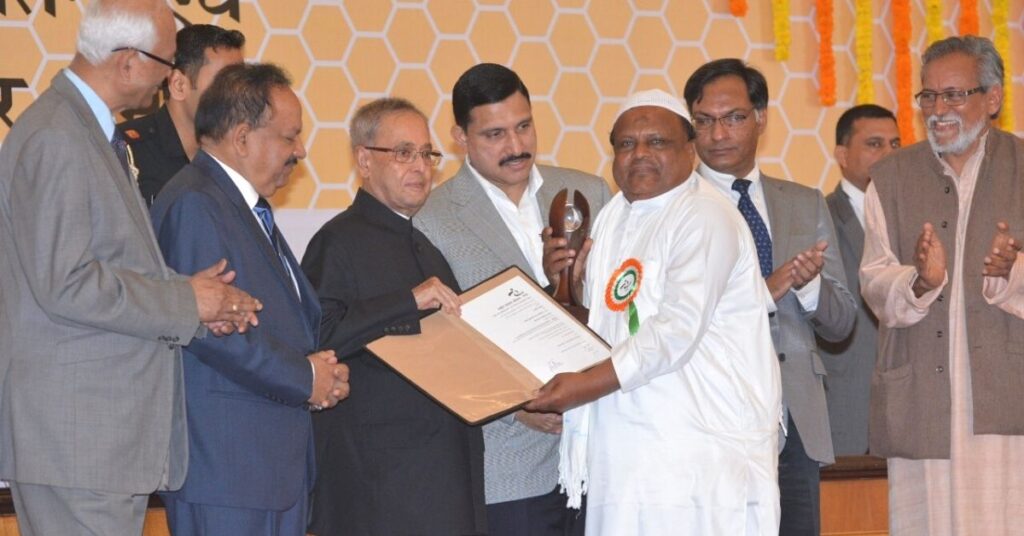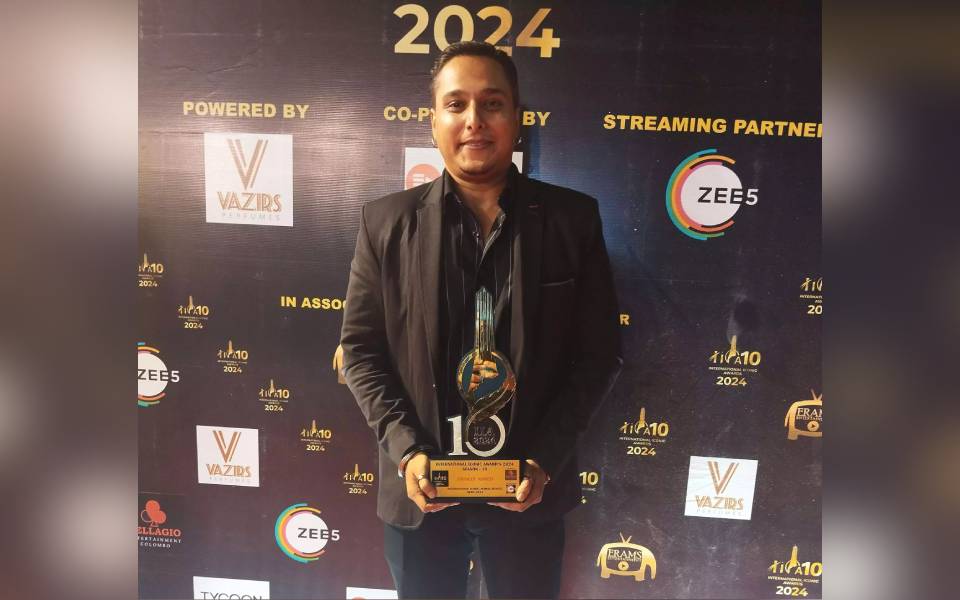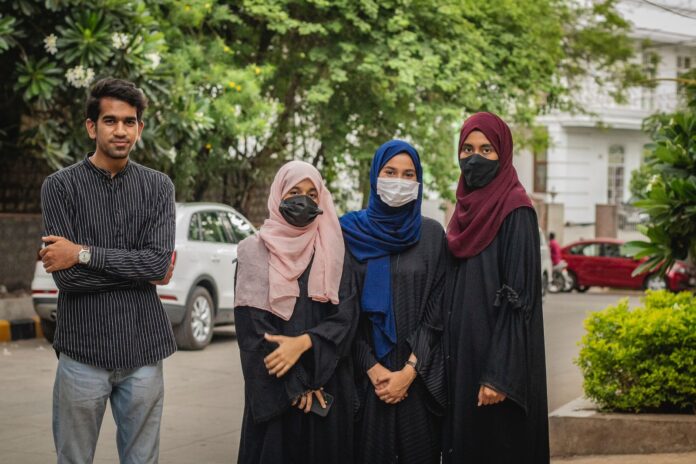Dehradun, UTTARAKHAND / NEW DELHI / Bengaluru, KARNATAKA :
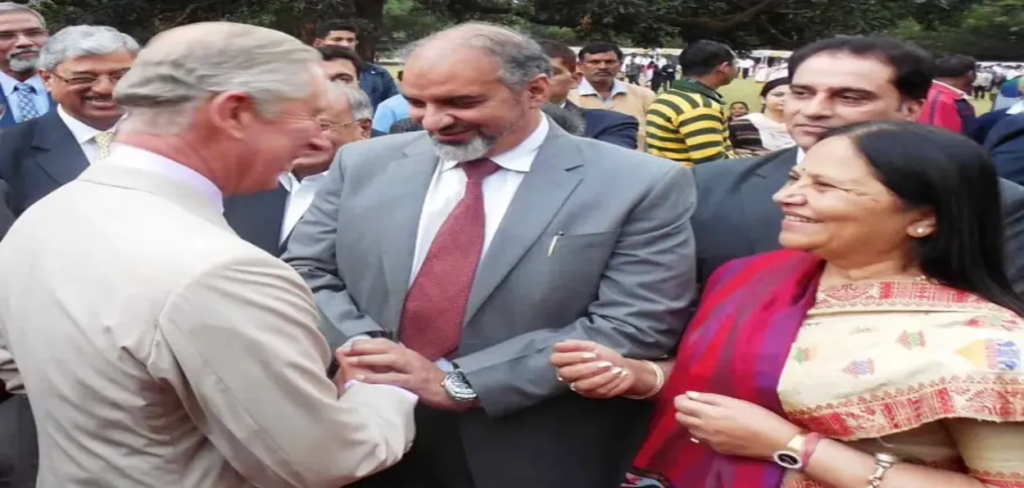
Dr Syed Farooq with King Charles in London
Dr Syed Farooq, the soft-spoken director of the famous Ayurvedic medicine company Himal Drug, gives all credit of his success to his maternal grandmother whom he called ‘Nani Aapa’. He is so influenced by her that even today his childhood memories revolve around her.
In a special; conversation with Awaz-The Voice, he narrated many stories of his childhood and all were linked to his grandmother.
Dr Syed Farooq was born in 1955 in Dehradun in the family of Syed Rashid Ahmed, a renowned Ayurveda researcher.
He completed his M.Sc, Ph.D, D.Sc degrees from Hemvati Nandan Bahuguna Garhwal University. Apart from this, he completed his Post Graduate Diploma in Business Management from AIMA Delhi.
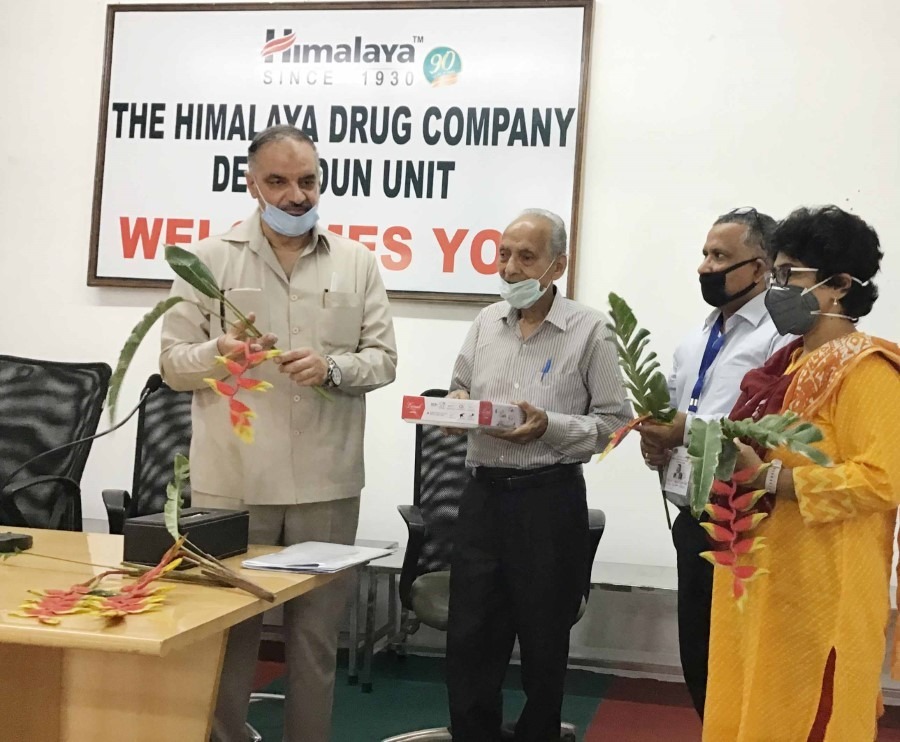
The Delhi-based Dr Syed Farooq is the editor-in-chief of Universities Journal of Phytochemistry and Ayurvedic Medicine. He is also the chairman of Tasmiya All India Education and Social Welfare Society. He was nominated for the Padam Shri Award in the year 2004.
He is the director of Himalaya Drugs and patron of many degree colleges and schools besides being associated with many state and national-level educational institutions.
For the uninitiated, Himalaya Drug Company is an Indian multinational pharmaceutical company based in Bengaluru. It was originally founded in 1930 in Dehradun by Mohammed Manal. It produces healthcare products containing Ayurvedic ingredients under the name Himalaya Herbal Healthcare.
Its operations are spread across India, the United States, the Middle East, Asia, Europe, and Oceania while its products are sold in 106 countries.
Speaking about his days growing up in Dehradun, Dr Syed Farooq says, “My house was in Dehradun and my grandmother’s house was in Muzaffarnagar. We used to go there during summer vacations. In my grandmother’s house, water came from a hand pump that was used by all the neighbours. A portion of the house was made of mud and I liked it very much. It had a pleasant fragrance and remained cool in the summer days.”
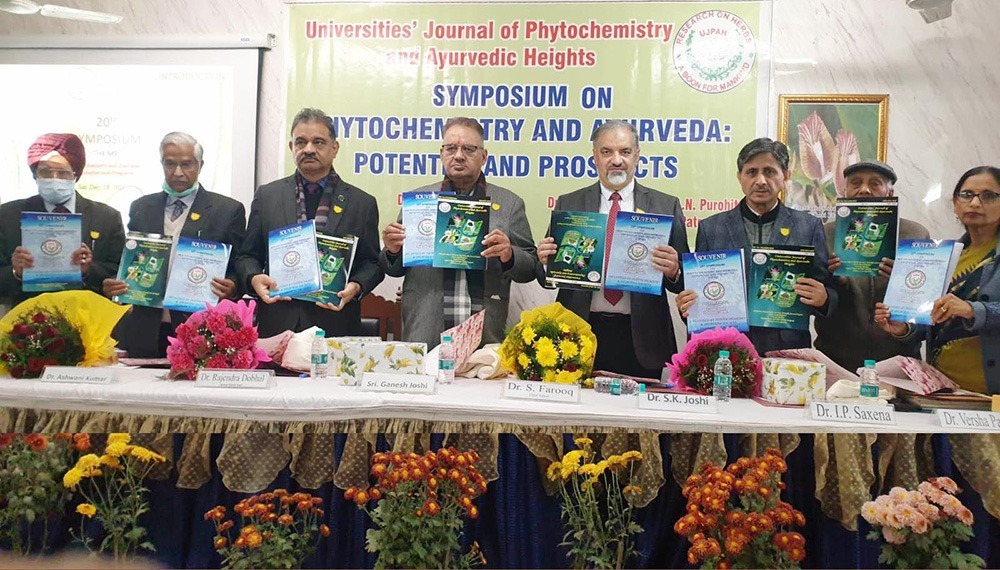
He goes on, “I remember that in summers we used to sleep under a Jamun tree and a mosquito net. In the morning, ripe Jamuns would be lying on the mosquito net. The taste of those fruits was so different from what we get today.”
Going down memory lane, Dr. Syed Farooq says, “When I was young, I was fond of hunting and horse riding. I would go far away from home and hunt, there was no restriction. In our orchard, a variety of mangoes grew, and on ripening, we used to enjoy the delicious fruit.”
“When I was studying in a school in Dehradun, I wore a tie as part of my school uniform. Strangers often stopped me and asked me to read a passage or text. Back then children were not afraid of being beaten or abused by elders; people loved children. The line in the poem is that
The elders including unknown people gave blessings to the children while walking on the road. Where are the people who give blessings these days? Now there are neither takers nor givers.
In a philosophical tone, he says people should realise that the colour of hair turns white for a purpose. “Allah changes it to white with age as white symbolises peace.”
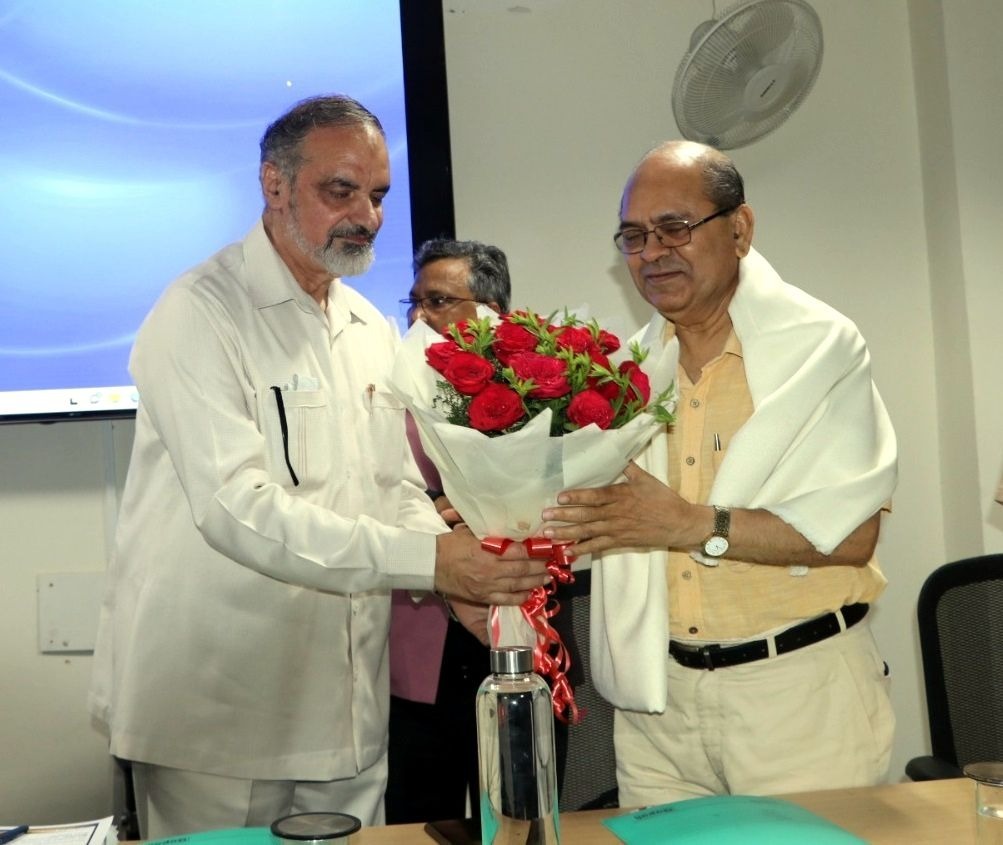
Recalling his memories of his Nani Appa, Dr. Syed Farooq said, “My grandmother was a simple lady. Nani Apa was so incredulous that she fell for all the naughty things children did and presented the same differently to her. When the truth was out, she used to complain to our mother and say, “Noor Jahan, my eyes are opened and mind is surprised after seeing your children.”
Nani Apa never sat idle, she always kept doing some work. If there was no work to do, she would sit and talk with the children and listen to stories but she never told them any stories.
Nani Apa loved chaat. If Nani Apa ever felt upset the children offered her a treat of chaat after making her promise that she would not complain to their mothers. “As soon as we got her chaat, Nani Apa would be happy and say, “It’s okay, you are forgiven but never do it again.”
Dr Syed Farooq recalls says he was 10 years old when his grandfather Niaz Ahmed passed away. He was in the police during the British rule. He was a very cheerful and affable person who loved children.
He says his grandfather used interesting phases while narrating stories to the children.
He remembers every moment spent with him; his face while his body lay in the coffin. “I remember that Nana Abba used to sharpen pencils for us with his pocket knife. The pencil tip was sharper than what we get today with a sharpener.”
Dr. Syed Farooq says his great-grandfather Syed Hamid Madani was a businessman. Our great grandfather Syed Mohammad Baranjad Madani lived in Roorkee and was into the carpet business. His great-grandmother hailed from Kashmir.
source: http://www.awazthevoice.in / Awaz, The Voice / Home> Story / by Mohammad Akram, New Delhi / July 21st, 2024






